Don’t waste your breath calling Boris Johnson a liar
It is much more damning to conclude that the prime minister is careless and incompetent rather than dishonest, argues John Rentoul

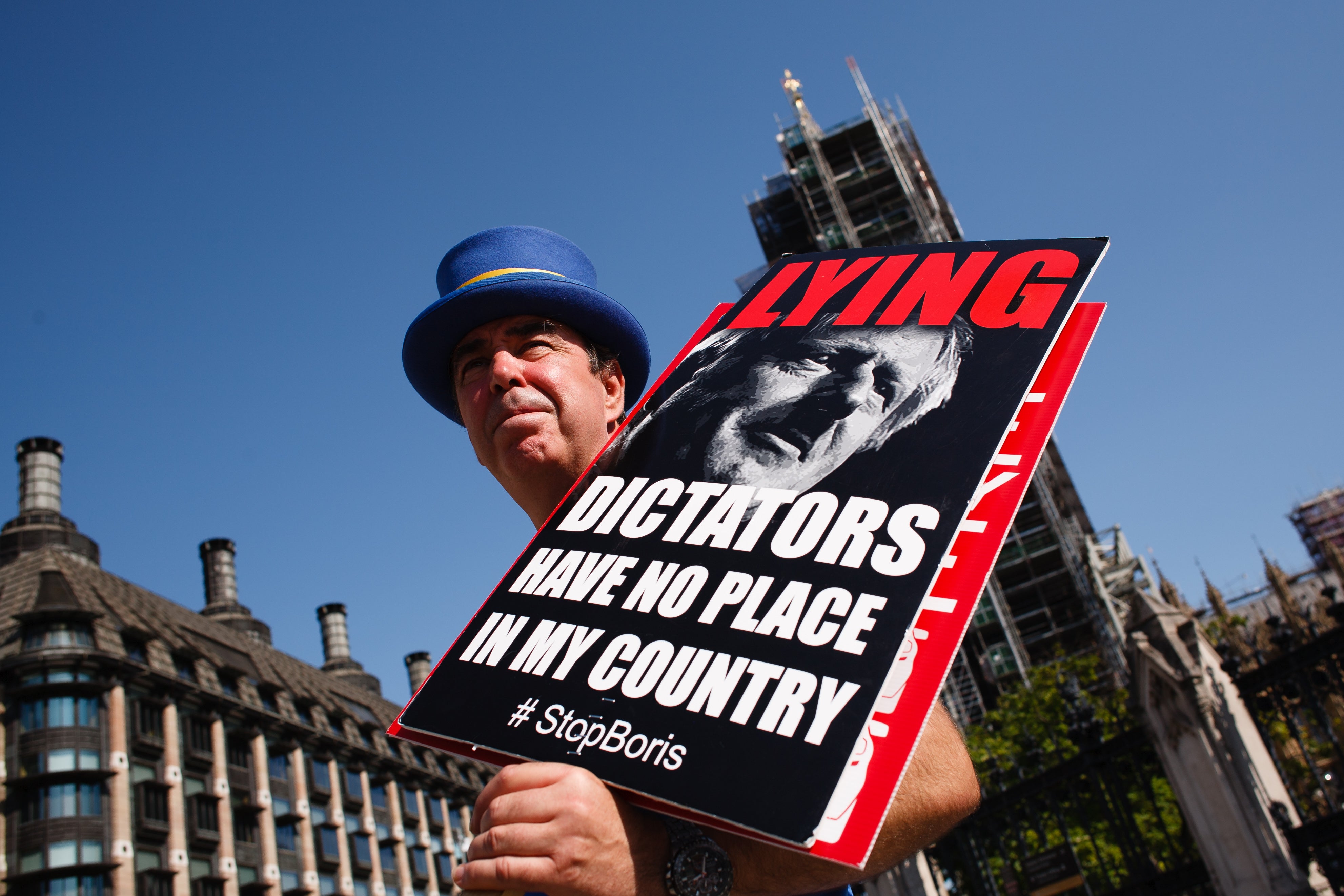
What is the point of calling Boris Johnson a liar? I asked Steve Bray this question the other day. He is the noisy man who used to shout “Stop Brexit” outside parliament, and having failed to stop Brexit now shouts through a loudspeaker that the prime minister is “a liar, a cheat and a charlatan”.
In between these tirades, he plays loud music in the general direction of the seat of our democracy from a traffic island in Parliament Street. “The Lunatics (Have Taken Over the Asylum)” by the Fun Boy Three. “Road to Nowhere” by Talking Heads. “Liar” by the Sex Pistols. You get the idea.
I quite like the music, and I would defend to the death Bray’s right to free expression even if I didn’t. On the other hand, I would go for checks and balances on the subject of amplified speech and music in public places. And I do not see the point of bawling abuse at people, even if Bray, a former Liberal Democrat candidate, disagrees with them.
This is my first objection to calling someone a liar: that it is abuse rather than argument. To call someone a liar is to accuse them of setting out to deceive, of being a dishonest person with bad motives. It renders discussion, debate or even conversation impossible because it refuses to accept that the other side has anything constructive to contribute.
So why does he do it, I asked. “It needs to be pointed out,” Bray replied. He thinks the prime minister is so bad and leading the country to such a terrible destination that he is obliged to speak up. Loudly. But what good does it do to stand there shouting “liar” all day? Some people who don’t like Johnson will agree with you; others who voted for him not that long ago, giving him a democratic mandate, won’t agree with you; and you won’t change a single person’s mind. “It’s my democratic duty,” Bray said.
A lot of people agree with him. A lot of people thought it was Dawn Butler’s democratic duty to call the prime minister a liar in parliament and get herself thrown out of the Commons chamber. She was quoting a video made by Peter Stefanovic, an Australian journalist, itemising eight “lies” told by Johnson in parliament, which a lot of people have watched with approval.
I disagree with Bray and with Butler. I think the rule in parliament that an MP may not call another MP a liar is a good one. I do not think it would be good for democracy to allow our representatives to call each other names. Indeed, I would extend the rule to everyone outside parliament, including on social media. It is a good rule for life. Insults may make the insulter and their supporters feel better, but it gets them nowhere.
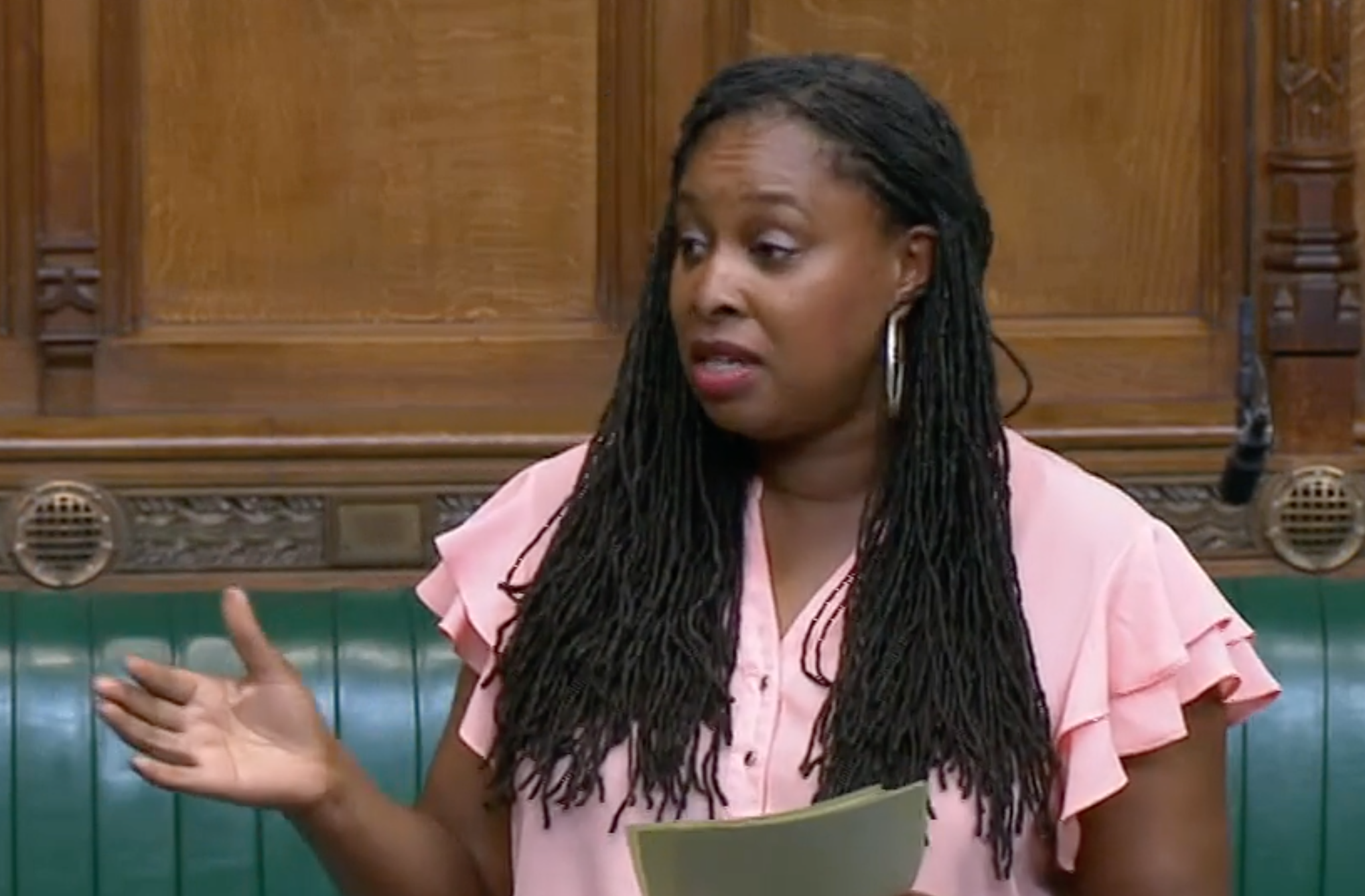
I understand the frustration that many of the prime minister’s opponents feel. He is given to sweeping and provocative statements about the world as he wants it to be: statements that are sometimes partial, misleading or simply untrue. The temptation is to overreact and to denounce him in insulting and personal terms. Which is fine as therapy for those he has defeated, but does nothing to persuade the undecided that he is wrong.
Take Butler’s deliberate breaking of the Commons rules. How many minds did that change? Indeed, how many minds was it likely to change, given that, in all the reporting of it, I read only one reference to the substance of what she said rather than the word she used to describe the prime minister? And given that this one report of the substance, in The Guardian, not usually indulgent of Johnson, said his statement appeared to be “an error rather than a deliberate attempt to deceive”?
So let us look at the claims that Johnson has made untrue statements. Let us take each of the eight examples from Stefanovic’s video, plus the one added by Butler herself, and another statement made outside parliament that is often cited on social media, including by Stefanovic, to give us a Top 10, and see what case can be made against the prime minister without claiming to have a window into his heart.
I understand the frustration that many of the prime minister’s opponents feel. He is given to sweeping and provocative statements about the world as he wants it to be: statements that are sometimes partial, misleading or simply untrue
1. “We have cut CO2 emissions in this country since 2010 on 1990 levels by 42 per cent. That is an astonishing achievement.” Answer to Jeremy Corbyn, Prime Minister’s Questions, 5 February 2020.
This is untrue. As Stefanovic says, the fall is since 1990, not since 2010. It is a bit of a stretch to call this a lie, however, as the figures are well known and a simpler explanation would be that Johnson muddled his words, intending to say something like “including since 2010”, to make the point that Conservative-led governments should take some of the credit.
2. “The economy, under this Conservative government, has grown by 73 per cent.” Answer to Jeremy Corbyn, Prime Minister’s Questions, 29 January 2020. This is the second half of a sentence which begins: “This country has reduced CO2 emissions already by 42 per cent on 1990 levels, while…” In other words, getting the CO2 reduction right but getting the economic growth figure wrong – again mangling the sentence to try to claim credit for the Conservatives. Given that the whole sentence contradicts itself, it can hardly be called a deliberate untruth.
3. “We’ve restored the nurses’ bursary.” This clip is from Prime Minister’s Questions, 26 February 2020, and Johnson repeated the same claim on 4 March 2020 and 19 May 2021. This is a political argument rather than a question of fact. The best explanation is from Full Fact, the fact-checking organisation: “In December 2019, the Conservative government led by Boris Johnson announced the introduction of an additional £5,000 grant for all student nurses to help with living costs, with an additional £3,000 available for some eligible students. However, students would continue to pay their own tuition fees.
“This is not the same system that existed before 2017, so in that sense it is not true that the old bursary has been ‘restored’. Johnson’s government has reintroduced a system in which all student nurses receive a non-repayable grant from the government, but it does not pay their tuition fees on their behalf, which was the system when the old bursary applied.”
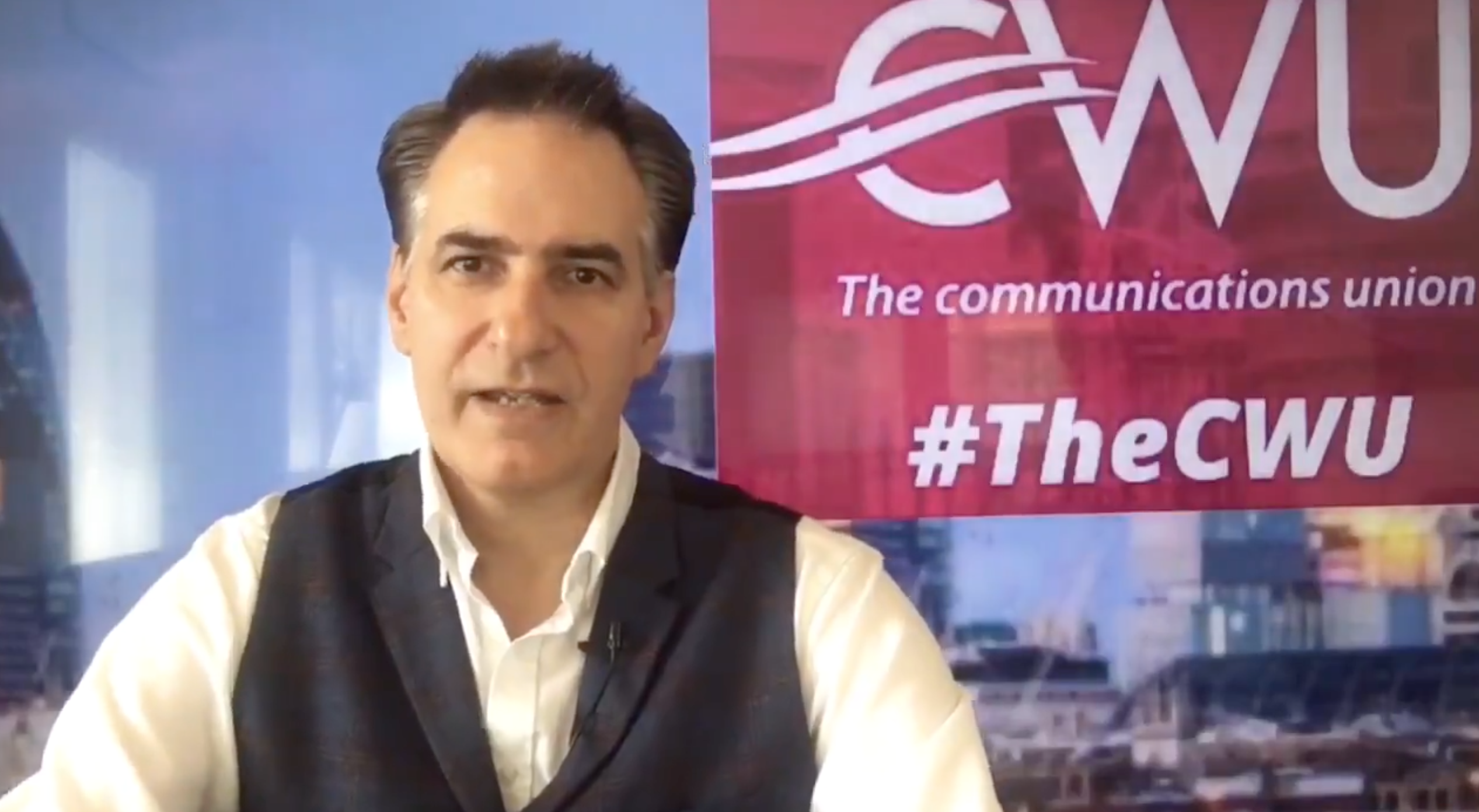
In other words, Johnson was making a claim with which Full Fact, Stefanovic, Butler and I disagree. That does not make him a liar. He could, for example, sincerely believe that he has restored the essential element of the bursary.
4. “There’ll be free hospital car parking for everyone who attends a hospital.” Answer to Jeremy Corbyn, Prime Minister’s Questions, 4 March 2020. This was wrong. It had been announced that hospitals in England “will be expected to provide free car parking to groups that may be frequent hospital visitors or those disproportionately impacted by daily or hourly charges for parking”. That is, not “everyone who attends a hospital”, but selected people, including “blue badge holders; frequent outpatients who have to attend regular appointments to manage long-term conditions; parents of sick children staying in hospital overnight; and staff working night shifts”.
These guidelines were supposed to come into effect in April 2020, but were overtaken by the pandemic, during which staff have been allowed free parking. What happens now is still in doubt.
The best that can be said about Johnson’s claim is that it was a careless exaggeration, which he should have corrected.
5. “Absolutely poverty and relative poverty have both declined under this government and there are hundreds of thousands – I think 400,000 – fewer families living in poverty now than there were in 2010.” Answer to Keir Starmer, Prime Minister’s Questions, 17 June 2020. I wrote about this at the time. Of the three facts in that sentence, one was true. Absolute poverty had indeed declined since 2009/10. The reduction was about 200,000 individuals (not families), while relative poverty – which is what most people agree is what matters – had increased by about 900,000 individuals, after housing costs.

Starmer challenged Johnson to correct the record at the following week’s Prime Minister’s Questions, and Johnson carefully read out some new numbers, rather than trying to remember them (the “I think” in his original answer was a giveaway): “I am happy to point out to m’learned friend that actually, there are 100,000 fewer children in absolute poverty and 500,000 fewer children falling below thresholds of low income and material deprivation.”
As I pointed out at the time, the second figure was wrong. Someone had obviously looked it up for Johnson in statistics produced by the Department of Work and Pensions, but had overlooked a change in methodology and a warning: “Figures from the old and new suite of questions are not comparable.” Adjusting for the change, there had in fact been a smaller reduction of 200,000.
How typical of Johnson that, on the one occasion when he tried to correct the record, he got it wrong again.
6. “The app would be the icing on the cake. If we can get it to work it would be a fine thing. But there isn’t one anywhere in the world.” Answer to Keir Starmer, Prime Minister’s Questions, 24 June 2020. As Stefanovic said, there were several contact-tracing apps in use around the world at the time, but this is an argument about what it means to say that an app “works”.
I am happy to point out to m’learned friend that, actually, there are 100,000 fewer children in absolute poverty and 500,000 fewer children falling below thresholds of low income and material deprivation
Full Fact said this: “Many countries had launched apps that were operational when the prime minister was speaking. However, at the time it was not yet clear whether any of their technological approaches were effective, or whether they’d been downloaded widely enough to reduce the spread of Covid.
“There is now some evidence that contact-tracing apps have been effective to some extent in several countries, including the UK.
“Arguably, Johnson oversimplified the situation by claiming that no app was working anywhere (when he couldn’t yet be sure, and apps were certainly available and being downloaded by millions of people), but Butler also oversimplified things by claiming that he was definitely wrong (which we can’t be sure he was at the time, either).”
7. “He will know that the government is engaged in record investments in the NHS, £34bn.” Answer to Keir Starmer, Prime Minister’s Questions, 15 July 2020. This is standard political knockabout. All governments have used cash figures when it suits them, to make the amounts look bigger and to be able to claim a “record” spending increase, which it wouldn’t be if it were adjusted for inflation. It may be reprehensible, but it is not untrue.
The government had announced an increase in NHS spending of £34bn a year between 2018/19 and 2023/24. According to Full Fact this is “a misleading way to measure it”, and the increase, adjusted for inflation, would be £20.5bn, which is not as much in real terms as the increase between 2004/05 and 2009/10.
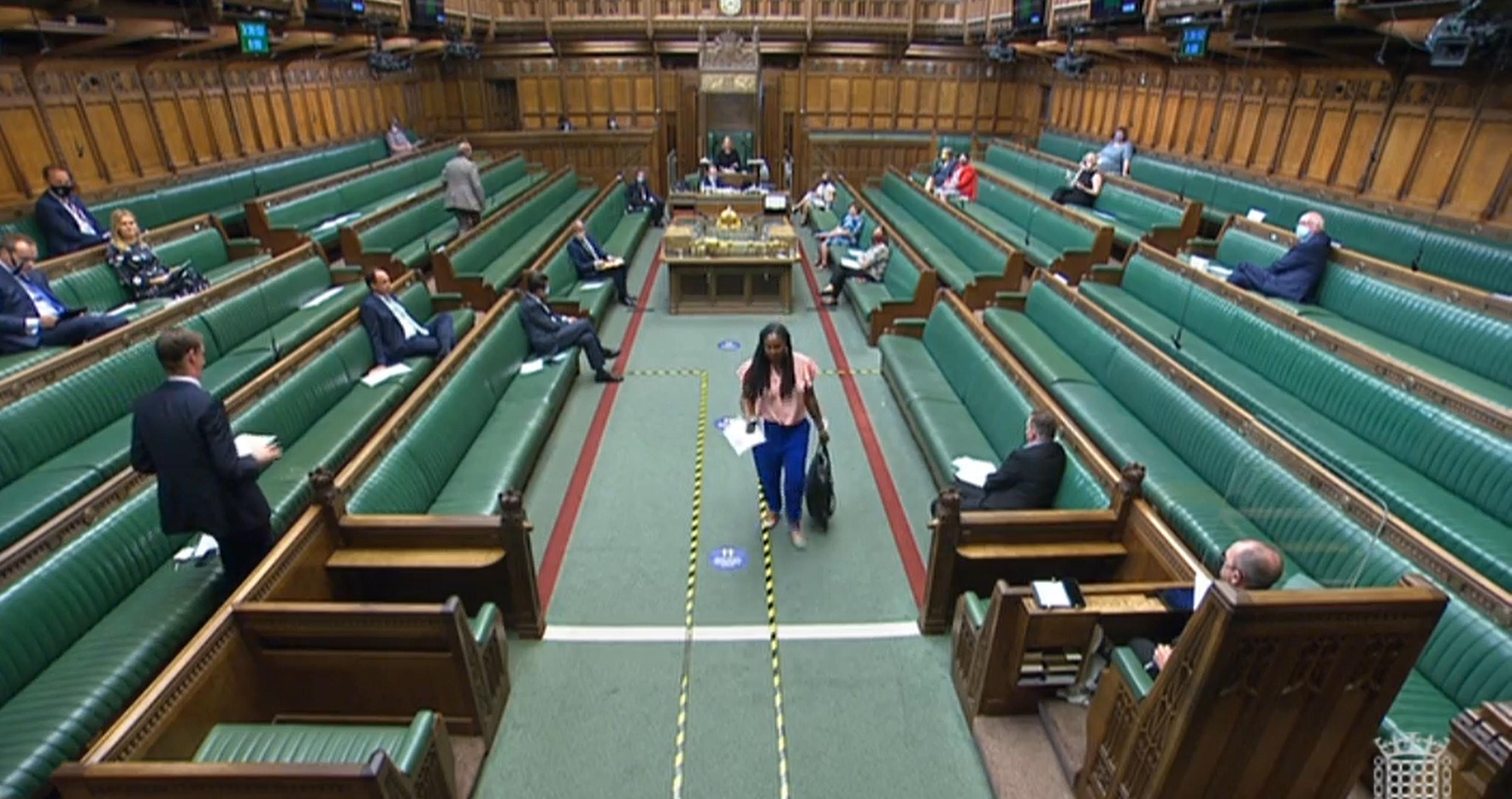
8. “We’ve absolutely determined to support childcare.” The People’s PMQs, 10 July 2020. This was a strange choice. Stefanovic took it as a reference to child benefit, and responded: “You’ve just increased child benefit by 35p a week.” But Johnson hadn’t been asked about child benefit; he had been asked about childcare, and the rest of the sentence, which Stefanovic didn’t show, went on, “...for both mums and dads; so we’ve got a package of 30 hours free childcare a week”. I don’t think Stefanovic should have bothered with that one.
When Dawn Butler read out some of Stefanovic’s claims that Johnson had lied, she added an example of her own before getting herself asked to leave the chamber.
9. “Scientists are also absolutely clear that we have severed the link between infection and serious disease and death.” Answer to Keir Starmer, Prime Minister’s Questions, 7 July 2021. Butler said: “Not only is that not true but it is dangerous.”
Again, Johnson was guilty of exaggeration. As Full Fact said, it is “not right to say that the link has been completely ‘severed’ between infection and serious disease or death, although it has certainly been severely weakened”. This was the comment of which The Guardian said “this appeared an error rather than a deliberate attempt to deceive”. To call this a lie would mean knowing that the prime minister set out to give the impression that vaccines provided 100 per cent protection when he knew the facts to be otherwise. I don’t believe Butler believes that, so why say it?
Finally, because it is a relevant example of Johnson’s way with facts and arguments, let us look at one further video clip of Johnson in a TV interview, rather than in parliament, which is often used on social media, including by Stefanovic, as evidence of the prime minister simply denying the imposition of a border in the Irish Sea between Northern Ireland and Great Britain.
10. “There is no question of there being checks on goods going NI-GB or GB-NI.” Interview with Sophy Ridge on Sky News, 8 December 2019, during the election campaign.
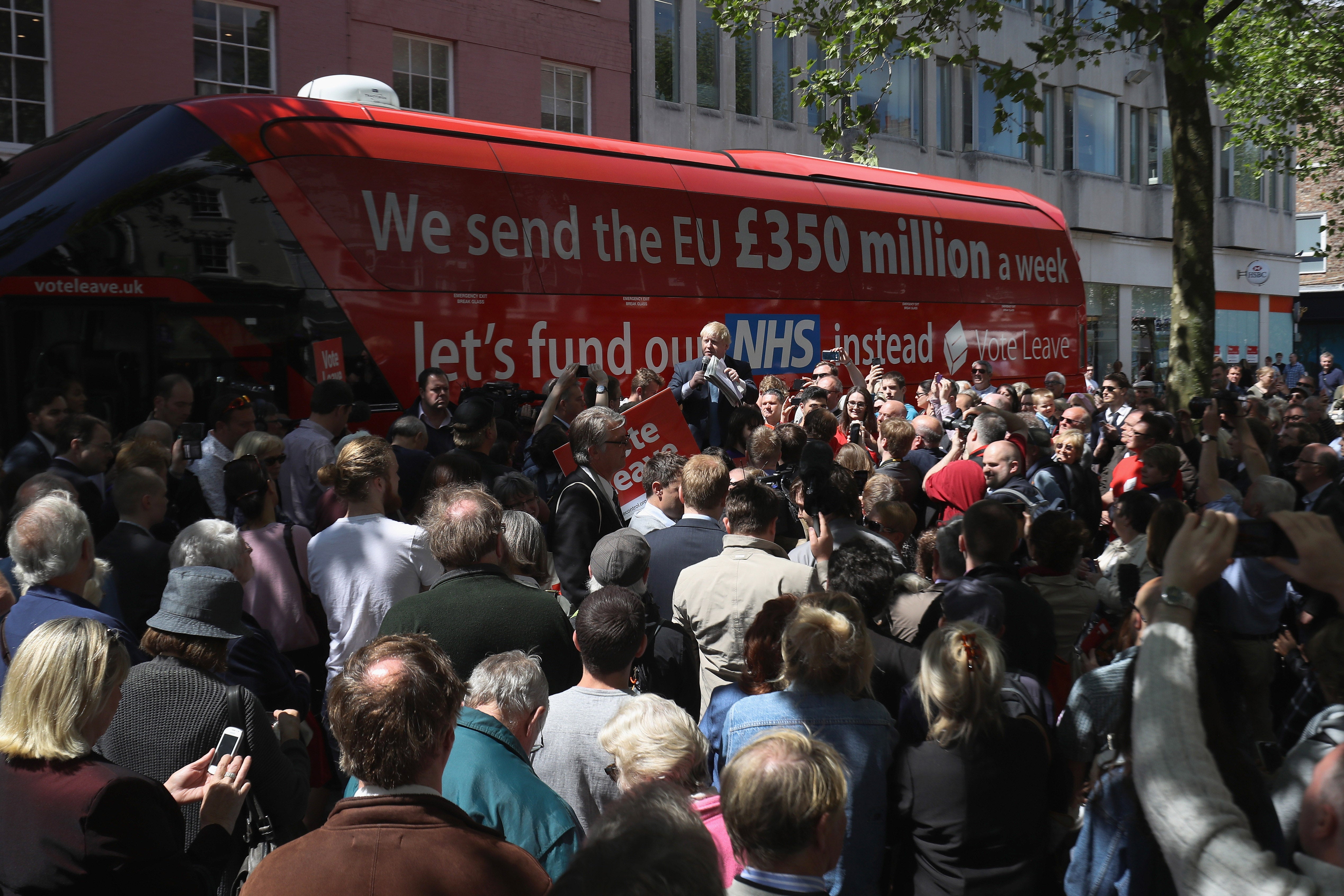
In the full interview, however, Johnson accepts that there will be some additional checks on goods going from the rest of the UK to Northern Ireland. “The deal we’ve done with the EU is a brilliant deal. It will allow us to do all the things that Brexit was about. So it’s about taking back control of our borders, money, laws, but unlike the previous arrangements, it allows the whole of the UK to come out of the EU, including Northern Ireland. And the only checks that there would be, would be if something was coming from GB via Northern Ireland and was going on to the Republic, then there might be checks at the border into Northern Ireland.”
In his next answer, he said that, while there would be no checks on goods going in the other direction, from Northern Ireland to the rest of the UK, “the issue is, how to avoid a hard border in Northern Ireland and we can do that by having some checks on goods that might be proceeding into the Republic”.
His answers, in which he said both that there would “absolutely not” be checks and that there would be “some checks” on goods destined for the Republic of Ireland, were misleading and contradictory. He has been found out by events, in that he and Lord Frost, his Brexit negotiator, now admit that they had not foreseen how the deal they signed would be interpreted by the EU. In which case we can conclude that they are poor negotiators, but not necessarily that they are liars.
Johnson may well have thought that he had secured a “brilliant deal”, because it seemed in principle to have solved the Irish border trilemma. He might even have convinced himself that the extra checks on goods heading for Ireland didn’t count because they wouldn’t affect the normal traffic of goods within the UK. In fact, the small print of the deal included rules about chilled meats, for example, that would affect supplies of sausages from the rest of the UK to Northern Irish supermarkets – which Johnson presumably assumed could be negotiated away in the joint committee set up to oversee the implementation of the protocol.
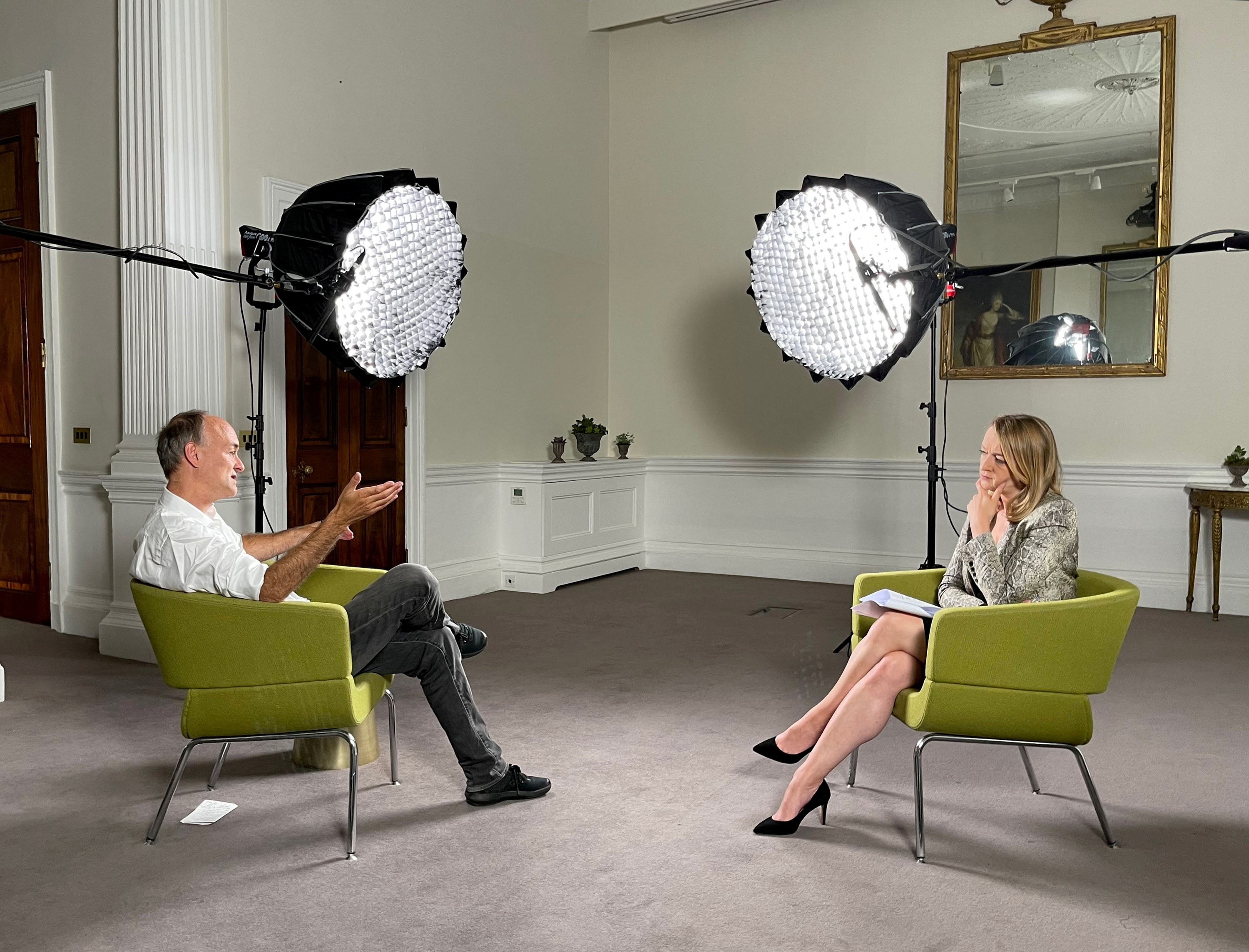
How much more damning it is, however, to conclude that the prime minister is incompetent rather than dishonest. If we review the 10 alleged untruths, some of them are debatable and others irrelevant. But the overall impression is one of wishful thinking. Johnson would like to think that the economy is growing and decarbonising at the same time thanks to Conservative policies. He knows the Tories have to claim to defend the NHS, and he would like child poverty to be receding. And he wants the pandemic to be over, so he is liable to overclaim the efficacy of vaccines.
Politicians tend to be guilty of selective and misleading use of statistics; Johnson seems to be more so, with the added crime of carelessness with words and guessing numbers when he is not sure of them. All of which magnifies the Original Sin of the Leave campaign in the EU referendum: the £350m a week figure on the side of the bus. That is the closest to something that can be called a deliberate untruth, I think, because “we did use it deliberately,” as Dominic Cummings, its author, told Laura Kuenssberg in his recent interview: “The point of using that really was to try to drive the Remain campaign and the people running it crazy.”
Yet he continues to insist that it was not misleading, and defends the number as a “true figure”. At the risk of continuing to be driven crazy five years later, it is worth reiterating that the statement on the bus, “We send the EU £350m a week,” was untrue. That was the figure for what the UK’s contribution would have been without the rebate – it was never “sent”.
As Full Fact says: “It is often impossible to say for sure whether somebody is lying, because you’d need to know that they intended to deceive people. At Full Fact, our focus is on whether the claim being made is true, not the intention behind it.” Driving Remainers crazy is not the same as intending to deceive people, and Johnson’s opponents continue to work themselves up into the kind of state where it looks as if they have lost the argument even when they are winning it.
A dispassionate view of Johnson, that he is careless with words and cavalier with facts, is damning enough, and it weakens the criticism of him to resort to the l-word. A “senior Labour Party figure” who sounded like Tony Blair described Labour’s problem with Johnson to Huffington Post: “Our party thinks that every time he opens his mouth, he’s an idiot, he’s a liar. But actually that doesn’t work, it backfires because he presents himself as a flawed character. The public quite like that he sometimes falls. He can get stuck on a zip wire but he’s seen as a great sport.”
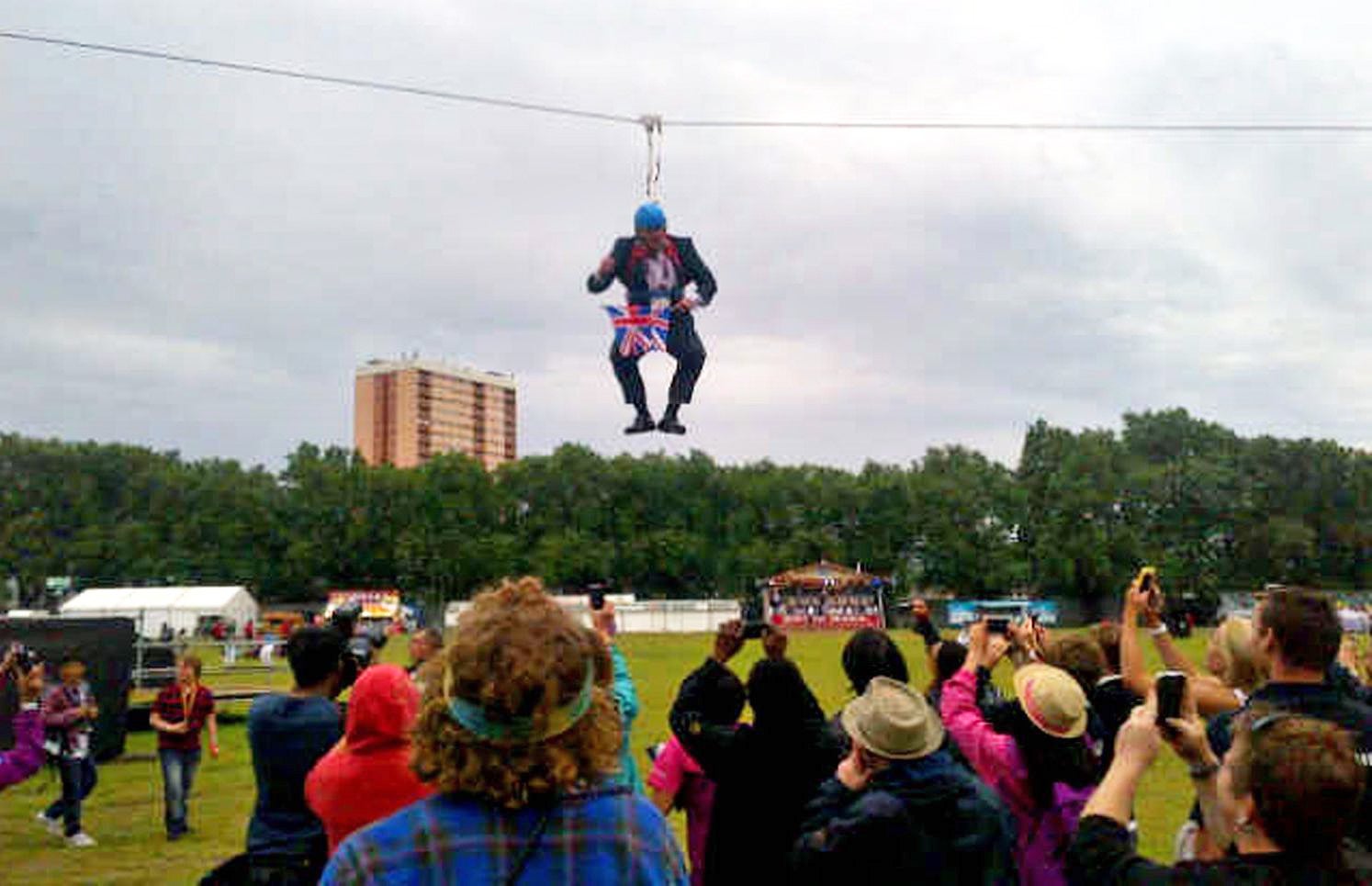
Johnson is not necessarily the kind of person that floating voters want to have running the country, but the way to persuade them of that is to avoid polarising insults. It is to cool down the debate rather than to allow social media to lead to what Charles Arthur, a former Independent colleague, calls “social warming”, in his new book, Social Warming: The Dangerous and Polarising Effects of Social Media. It might be more effective to ask the speaker of the House of Commons to intervene to invite the prime minister to correct the record than to be ejected from parliament for breaking the rules.
What Labour needs to fight Johnson is more Full Fact and less Stefanovic; more Tony Blair and less Dawn Butler.




Join our commenting forum
Join thought-provoking conversations, follow other Independent readers and see their replies
Comments